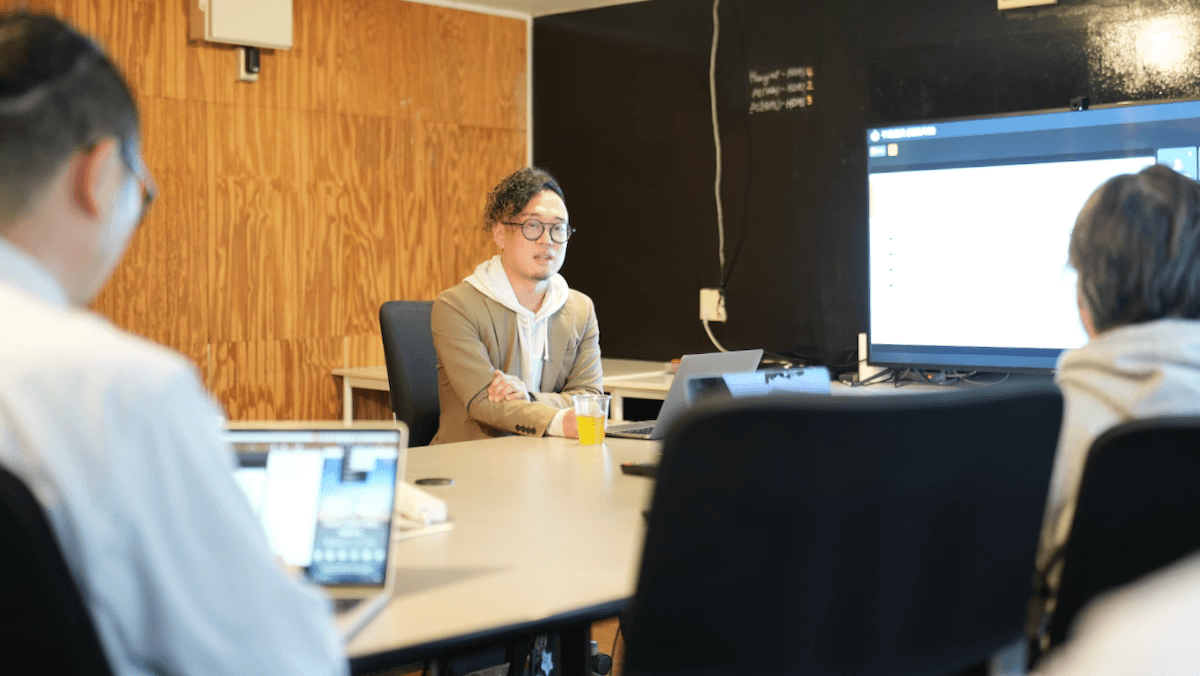制作会社にとってのウェブアクセシビリティ 色々やってますがモノサスはWeb制作会社でもあります。様々なウェブサイトを作ったり改修したりしています。制作のプロとしてより高い品質のウェブサイトを制作したいというモチベーションの向き先は、サイトパフォーマンスの改善や興味を引くデザインであったりするのですが、最も重要視すべき要素としてウェブアクセシビリティの向上は外せません。
「アクセシビリティ」という言葉は、Access(近づく、アクセスするの意味)とAbility(能力、できることの意味)からできています。「近づくことができる」「アクセスできる」という意味から派生して、「(製品やサービスを)利用できること、又はその到達度」という意味でも使われます。 ウェブアクセシビリティは、ウェブにおけるアクセシビリティのことです。利用者の障害などの有無やその度合い、年齢や利用環境にかかわらず、あらゆる人々がウェブサイトで提供されている情報やサービスを利用できること、またその到達度を意味します。
[ウェブアクセシビリティとは? 分かりやすくゼロから解説! | 政府広報オンラインより]
法改正の施行やSNSのあんなことやこんなことで、世の中ではアクセシビリティへの関心がどんどん大きくなってきていて、社内でも少しずつ「なんかしたほうがいいかもね」という意見が出始めています。
現在ワーキンググループを作り、情報収集などを始めています。 ウェブアクセシビリティはコーディングやデザインのみならず、ウェブサイト構築(運営)のすべてのレイヤーで考慮する必要があります。そのため、ウェブアクセシビリティに興味が強い実装レイヤーのメンバーだけでなく、Web制作会社を構成する全員がそれぞれのレイヤーでの取り組み方を考え、方針を作り上げる必要があります。
例えば、サービスの品質として提供するのか、ウェブアクセシビリティ対応はオプションなのかというビジネス面でのジレンマや、案件ごとに提供するもののバラツキや方針が示せないことによるお客様とのミスマッチなど、よりよくしようと行動するためには広範囲に考慮して動いていく必要があり、個人的に大きな課題を感じていました。
平尾ゆうてんさんをお呼びして、ウェブアクセシビリティを考える時間をつくる
課題を感じていたのと近いタイミングでたまたまアクセシビリティスペシャリストである平尾ゆうてんさんとXで繋がりました。本当は私がなにかお手伝いできるかもという感じで話しかけたのですが、いつの間にか「モノサスで話していただいたりって出来るんですかね?」「もちろんやらせていただきたいです」と私が助けられる立場になっていました。
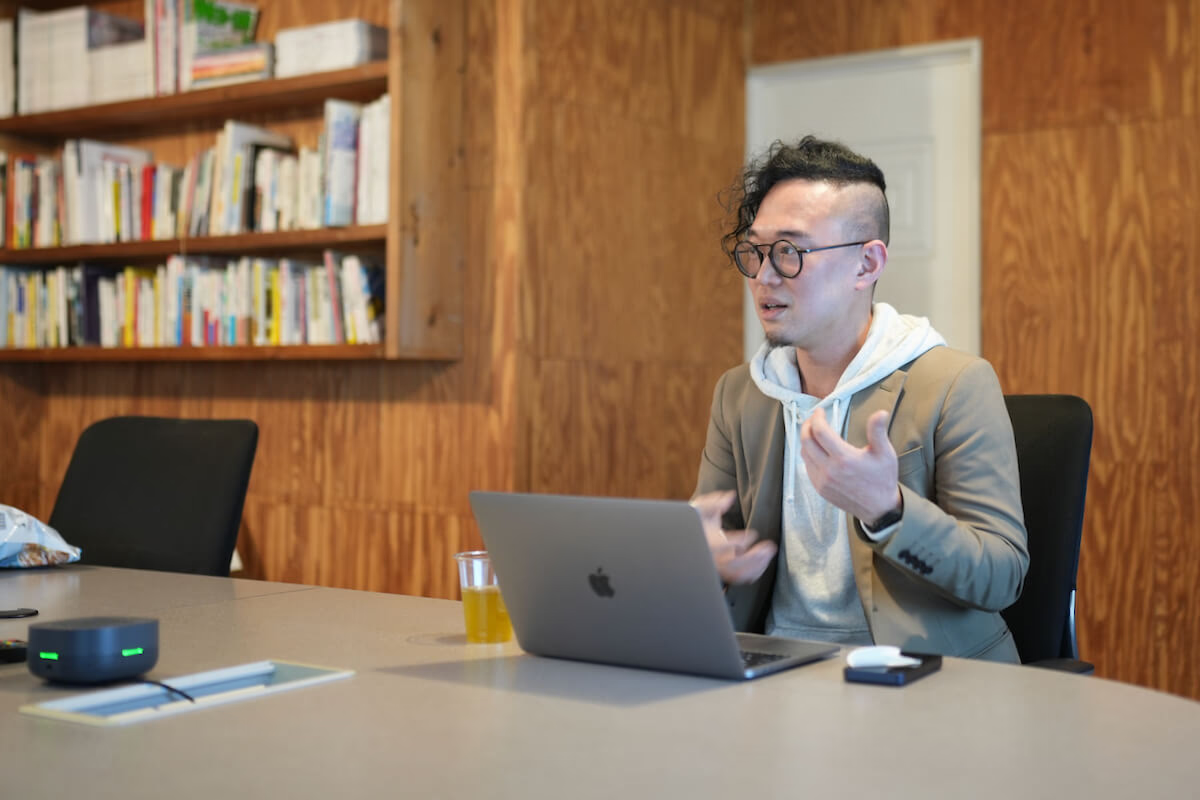
本名: 平尾優典(ひらおゆうすけ)
株式会社ディーゼロ 執行役員
フロントエンドテックリード/ウェブアクセシビリティスペシャリスト
ウェブサイト: https://u10.jp
X: @cloud10designs
企業のウェブアクセシビリティに関するコンサルティングや顧問を行うかたわら、制作会社のアクセシビリティの推進・啓発活動も行い仲間を増やす活動をしている。社内ではフロントエンドテックリードとしてアクセシビリティを含めた品質向上と開発効率化に取り組む。アクセシビリティカンファレンス福岡実行委員長。HTMLリンター「Markuplint」の開発者。HTMLのプロ。
ゆうてんさんに話してもらうなら、絶対にメンバー全員が参加する場でやりたい。そこで、月一度の全社での会議「全体会議」のなかのグループワークセッション「全員会議」の時間を使って「Web制作会社みんなで取り組むウェブアクセシビリティ」というテーマの話をしていただく事となりました。
当日の設計のための会議では、私の他にディーゼロさんからゆうてんさん、渡辺さん、モノサスからはアクセシビリティの草の根運動をずっと続けていた松原さん、全体会議をより良くするためにいつも一緒に考えてくれている原澤さんが参加してくれて、ディーゼロさんから見たモノサスや、改めてモノサスにどんなメンバーがいてどのような話をすれば耳目を集められそうかなど丁寧に話し合いを行いました。
当初私は(ゆうてんさんの今までの活躍を知っていたので)呼べばうまくいくだろぐらいに思っていましたが、あの会議めちゃ大事でした。
そして、ただゲストとして登壇するという話にとどまらず、「モノサスさんとこれからアクセシビリティ案件を一緒にやっていくきっかけにしたい」という姿勢で参加してくださったディーゼロさんのアクションもとても嬉しく感動しました。
全員会議の後によりディープな話もできる座談会もお願いできないかという追加のお願いも快く受けてくださり、本当にありがとうございました!
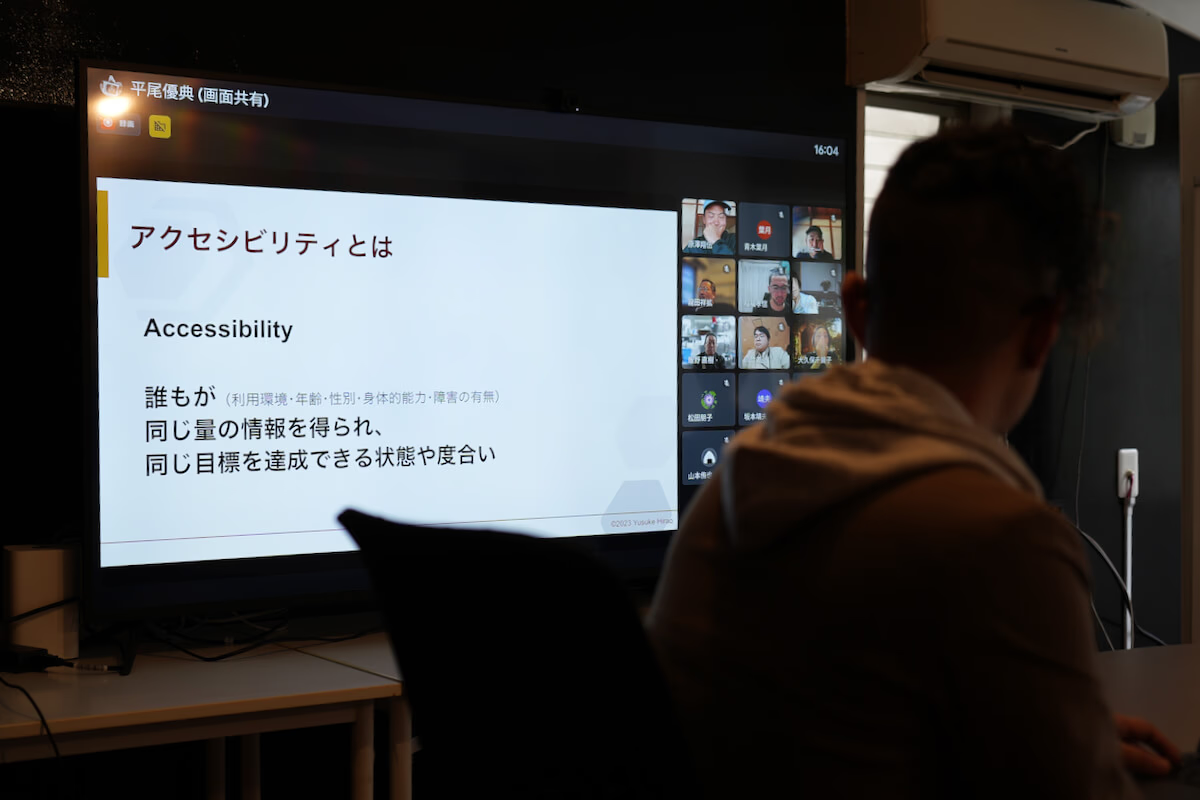
迎えた当日、全員会議で進行のバトンをゆうてんさんに渡してから2分も経たずに「はい、勝った!」と思えるくらいすべてがうまくいきました。ゆうてんさんの語り口が素晴らしいのはもちろんですが、『(モノサスには食のメンバーもいるけれど)バリアフリーよりもよりウェブアクセシビリティにフォーカスした時間にしたい。でもWeb制作に関わっていないメンバーもいます。』という今回私がモノサスに投げかけてほしい無茶な要望をもれなく汲み取って構成してくれていたことにスタートから感動しっぱなしでした。
特にお話の冒頭にあった
クライアントワークをしていて一番言われたくない言葉
「知っていたら、やってたのに...」
は、私がゆうてんさんに相談していた、
(原田)「『アクセシビリティ的にNGです。』って大きなマサカリで殴っている感じがしてなかなかクライアントに言えなかったりします。。」
(ゆうてんさん)「プロとして仕事をする上で伝えるべき情報だからちゃんと伝えたほうがいいと思います」
をとても端的に表現しているパンチラインでした。私が持っているコンテクストに会社のメンバーを最短距離で引き上げてくれた気がして「アクセシビリティへの興味が湧いた人が必ず増える」と手応えを持ちました。
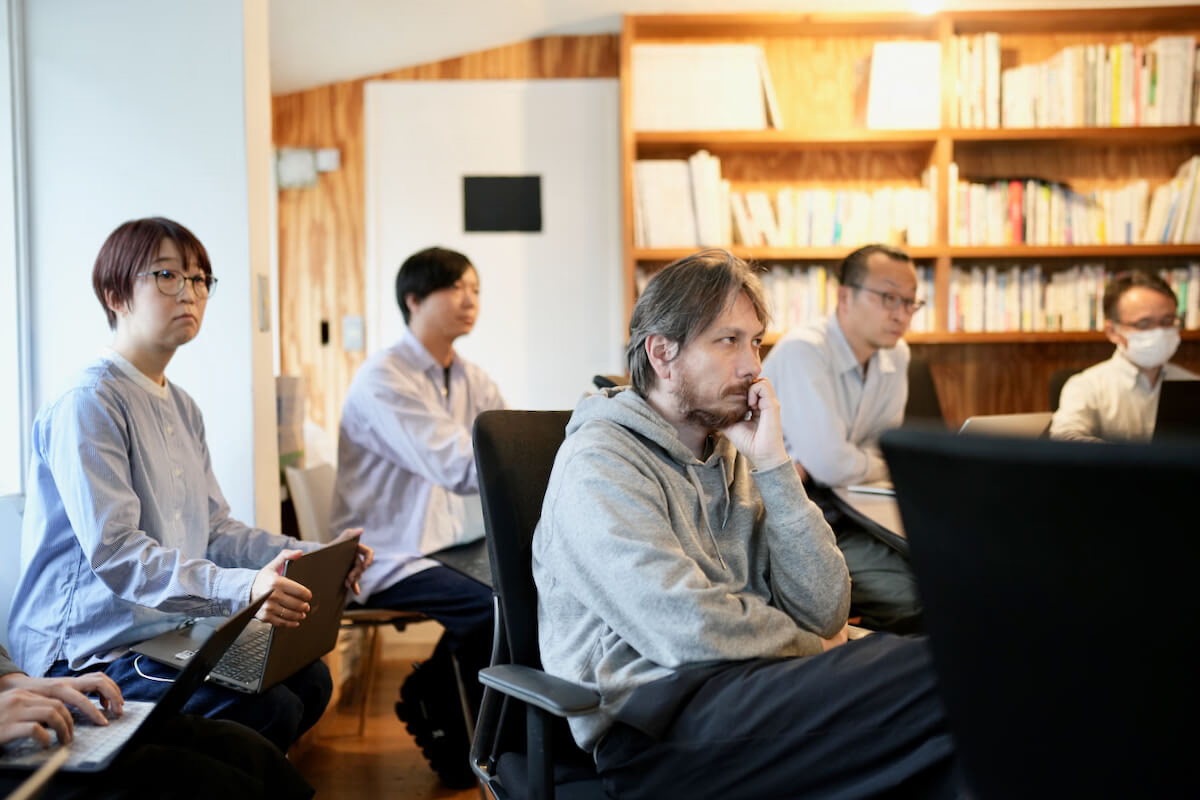
お話はアクセシビリティの基礎的な情報から始まり、なぜ重要なのか?を経て、小グループでのディスカッションの後、Web制作会社の提供する品質にどのようにアクセシビリティを取り入れていけばいいのかというテーマで進行していきました。
全員で話を聞いたあとは、より関心のあるメンバーが集まって、よりディープな話を聞いていく座談会にもご一緒いただきました。オフラインで参加したメンバーからは、開催を予告した3月から期待している声を何度ももらっていたのですが、会議当日は、今まで見たことのない彼らの興奮した姿を見ることが出来てオンライン開催ではなく代々木オフィスに来てもらえたことが良かったなと実感しています。
全員会議と座談会の感想
当日は全員会議〜座談会〜CIMI restorant(代々木オフィスに併設しているレストラン)での打ち上げまでずっと、アクセシビリティや”Web制作会社あるある”をゆうてんさん含めみんなで熱く語り合いました。普段聞きにくいかもと思いがちなちょっとしたことから、「じゃあ実装どうすればいい?」というところまで、ウェブアクセシビリティを一緒に考えられた半日間はとても貴重な経験になりました。
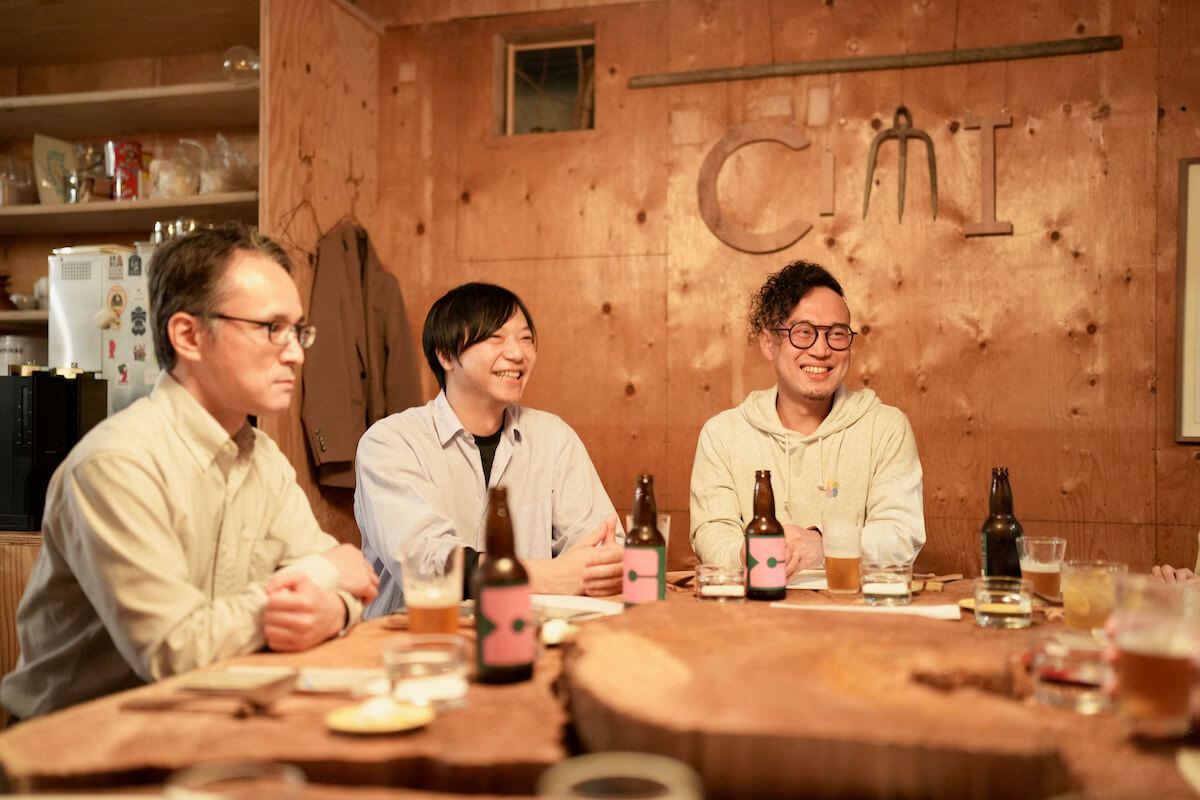
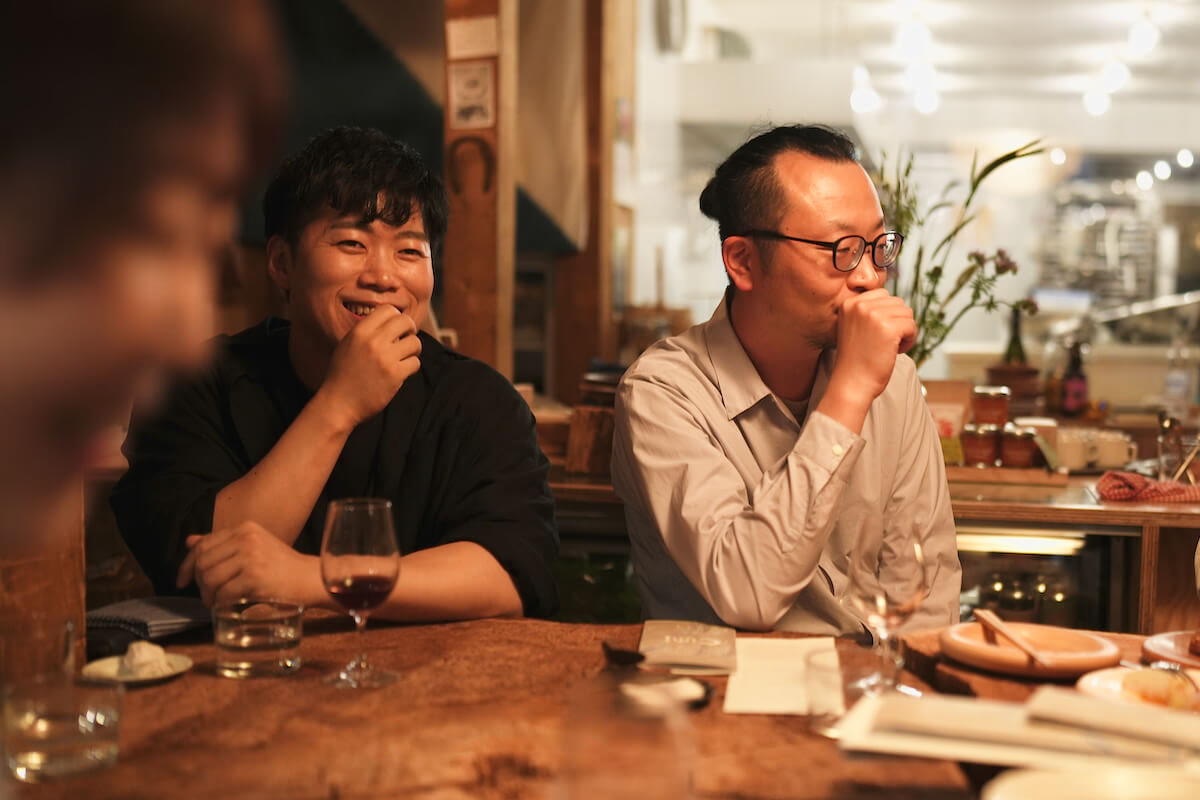
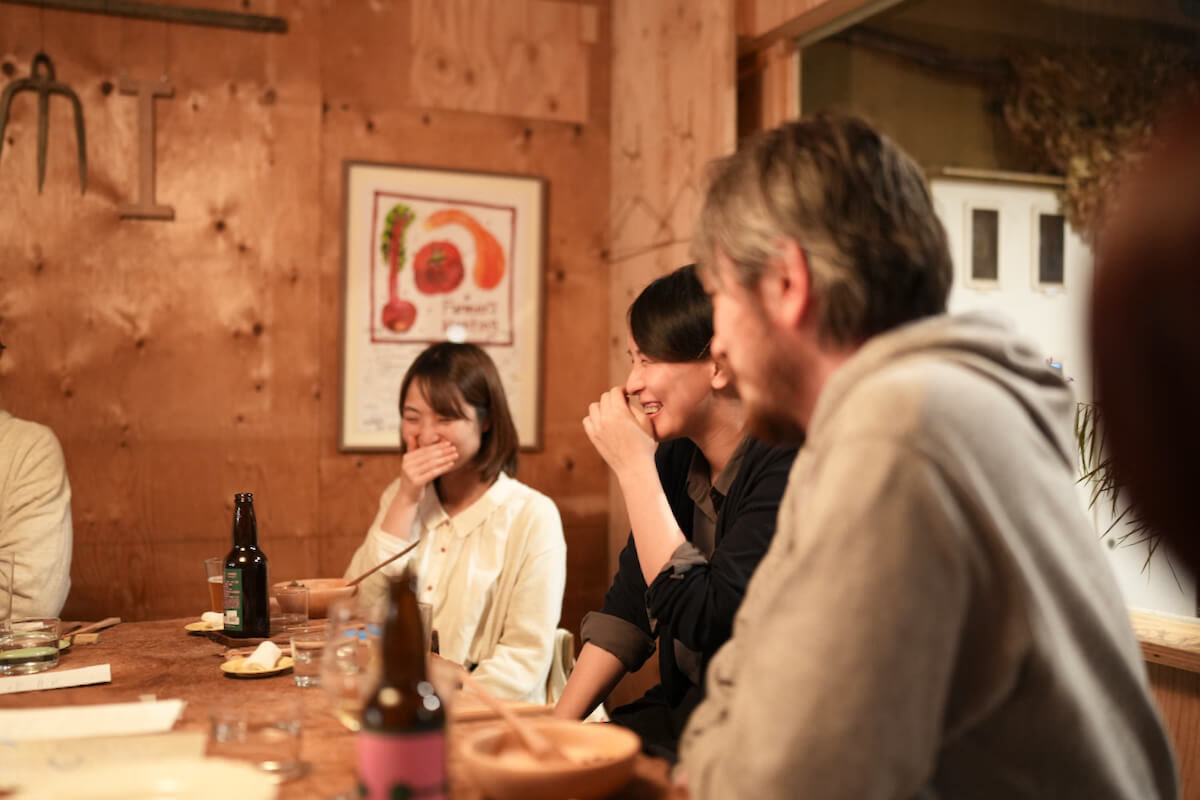
後日、振り返りも含めてオフラインで集まったメンバーと吐き出し会を行いました。その中ででた意見や話をいくつか御覧ください。
自分でも関われる感じがして安心した
- (アクセシビリティへの取組は)全てではなくてもちょっとずつやっていくでいい。
- ウェブに携わっているということは、すでにアクセシビリティに携わっているということだ。
- 見出しを適切につけるだけでもアクセシビリティの対応の一つだというのをお聞きして、取り組むにあたっての心理的ハードルが下がった。
- アクセシビリティポリシーを出す、やろうとしている意思を出すことが大事、という話が、そういう視点があるのかと思った。
ワーキンググループを進めていく
- 今はワーキンググループができている。そこをしっかり、とにかく1歩ずつでも進めていく。そこにいる人達を巻き込み続けていく。
- 社会から求められていることを一緒に働くメンバー全員が共有するというか、それをきちんと知識を持った人がわかりやすく伝える、今回の時間が持てた事自体がよかったなと思っていて。私達が提供しているものってなんなのかっていうことを理解してもらうには、そういう制作に関する、ものづくりに関するスペシャリストの人に作る責任とかそういうものをまたセミナーとしてやってもらうとか。どうやったらわかってもらえるのかってことでいうと、アプローチの仕方としてはひとつ考えられるかなとか。
アクセシビリティは品質
- 体調が変わったりするとそれだけでも品質、その人のパフォーマンスは変わるから、ルールをちゃんとつくるのが大事。体調が変わっても一定のものが出せるようにする、そういう機能ができるといいよねっていう話がよかった。
- 特別なことをやるのではなく当たり前のことをやろうよ。表に見えないからいいやっておいときがち、二の次になりがち、言われたらやるみたいなスタンスだったけれど。そのマインドが変わったっていうのはけっこう大きいかなと思います。品質ですよねっていうのが。品質を満たせていないものを出してるつもりはなかったけど、出してたんだなっていうことに気付かされた。
- 印象的なフレーズとしては、トレードオフじゃない、ということ。デザイナーさん視点の話で、アニメーションがゴリゴリあったものをつくりたいときに出た話だと思う。それも全体にも言えることというか。やって損することではなくていいことたくさんあるじゃんっていうのを理解してもらう。
-
全体会議や座談会の話を聞く前は、アクセシビリティに対して嫌な印象しかなかった。
技術的には絶対体験した方が良いと思っていた反面、制作の1オプション的な印象で、結局アクセシビリティをチェックする人、監査する人の顔色を伺って作業をしていたり、何の為にやるものなのか、目的を見失いがちでした。
今回話を聞きに行く事で、アクセシビリティに対する嫌な印象を払拭できるかと思ったので、現地で話を聞こうと思いました。
全体会議や座談会で特に印象深かったのが、何年後でも利用できる堅牢なサイトという所で、「アクセシビリティを守る」 が、障害者対応やただ使いやすいサイトを作るというものではなく、アクセシビリティを守る=品質という考え方にシフトする事ができる1日となりました。
とはいえ、少し時間がたつと自分の中で、熱が冷めていくのを感じるので、何かやらなければと思っていますが、、まず自分の手元から変えていきたいと思います。
灯火が消えてしまう前に
カンファレンスや勉強会、セミナーに出た直後はものすごくエンハンスされて「この世のすべてのアクセシビリティ」に感度が高くなります。だけど、取り組みとして続けていくためには、熱意だけでは進めきれない難しさがあると感じています。
それでも、今回のゆうてんさんのお話をきっかけに、私個人が感じる課題から会社の課題へ転換できたと感じています。何かが動き出す小さなきっかけを作りました。
以前ネットで拾った大好きなフレーズがあります。
「振り返り」なんて「ブロッコリー」みたいなもんさ。それは「活動」の「付け合わせ」くらいにしか思われちゃいない。でも、本当は、その日の食事で「最も身体によいもの」なんだ。でも、この「付け合わせ」を、僕らは、うんざりするほど、よく目にするんだよ。そして、みんな言うのさ。「ブロッコリーは、もう勘弁してくれよ」って。
これは「振り返り」の重要度は分かっていても、色んな理由をつけてだんだんやらなくなることをうまく表現出来ているフレーズです。「振り返り」を「アクセシビリティ」に変えても同じ様に響くフレーズだと思います。アクセシビリティ警察やアクセシビリティのピエロがうるさく言って回っても「Web制作会社として提供するアクセシビリティ」が向上するとは思えません。
制作現場ではなく取引も含めたビジネス全体の仕組みの中に組み込まなければ、取り残される案件や、メンバーが出てしまいます。だからこそ今回のテーマを「制作会社みんなでとりくむウェブアクセシビリティ」としました。
この記事をまとめている間に5月の全体会議を迎え、「肩書を考えてみよう」というテーマでワークショップを行いました。私は自分自身に「モノサスアクセシビリティアドボケイト」という肩書をつけてみました。次の名刺に追加しようと思います。
自社のアクセシビリティの擁護者として、ボトムアップもトップダウンも関係なく、実制作に入るメンバーは当然として、実制作に関わらないメンバーの積極的な参加を期待しています。なぜなら我々のビジネスの本質は 『提供者と利用者のコミュニケーションづくりを提供者といっしょに考え実装していくこと』 だと考えているからです。考え実装するコミュニケーションの一番最初がアクセシビリティでないのであれば何があるのでしょう?
つまりアクセシビリティは追加で行うものではないのです。
そして、わざと排除することも知らずに排除することも同じなのです。 我々が目指すのは、なにかに準拠したソリューションを提供することではなく、アクセス可能なソリューションを提供することなのです。
「え?なに原田が決めてんの?」と1ミリ秒でも思っていただけたのならぜひ一緒にやりましょう!
だってやってないのはありえないから。
